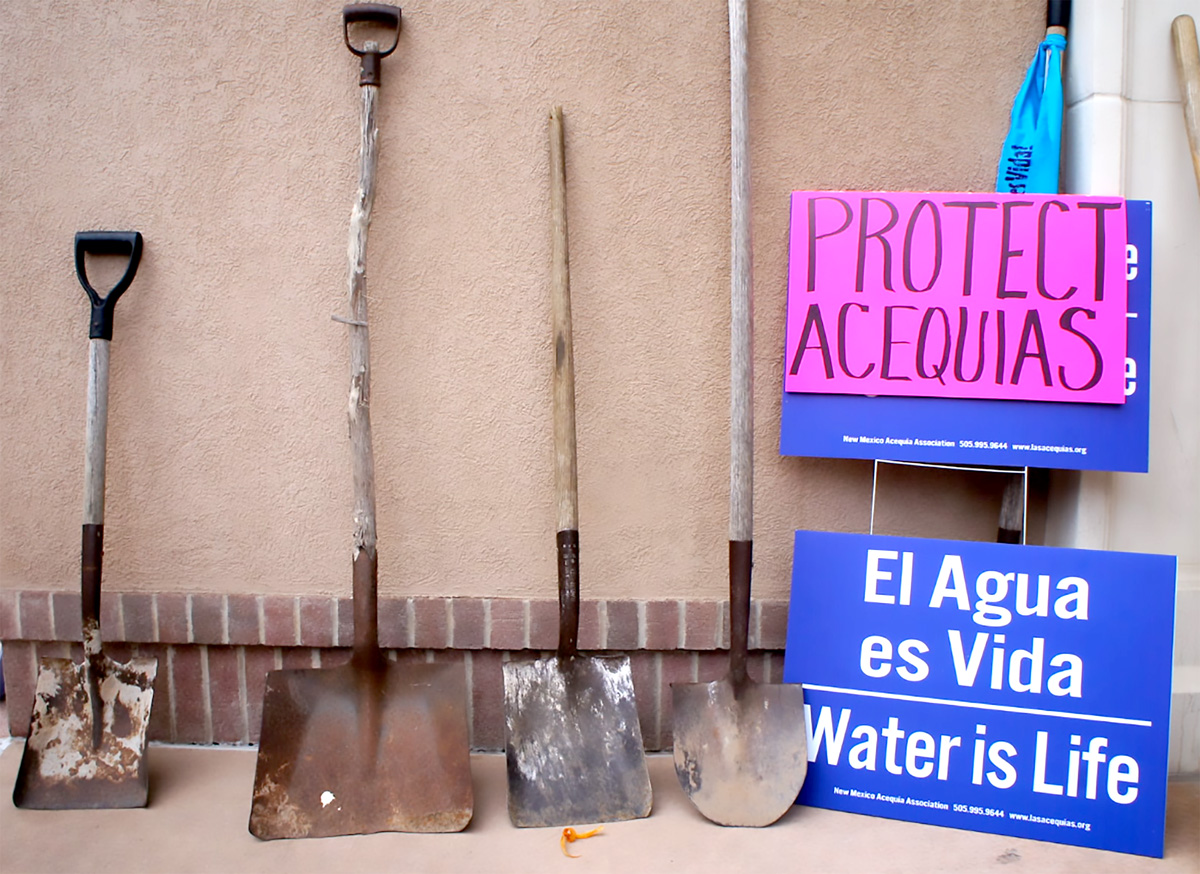New Mexico has the longest continuously traceable history of human water-use in the United States. The acequia system goes back to 800 A.D. where Ancestral Pueblos utilized water from ditches which fed off major rivers and tributaries. This system contributed to growing a rich agricultural environment for Native Americans living in these pueblos.
Spanish settlers made their way to New Mexico in the 1540s and brought with them their own knowledge of irrigation practices from Spain, which were very similar to those found in the Ancestral Pueblos in the area. New Mexico and Spain have similar arid environments, therefore it was absolutely necessary to maintain irrigation ditches to feed their land in their home country.
While the Native American peoples can be credited for creating the irrigation system locally, the Spanish settlers can be credited for bringing written documents forming the governance of water law, which was used in Spain. The water law put into place by the Spainards was influential in establishing the water law and governance over the acequias, which is still in place to this day.
Louise Gallegos is the treasurer of the Questa Citizens Ditch Association and her family has participated in the maintenance of the local acequias for as long as she can remember. “My dad was very involved, very involved in this work. He was a mayordomo (ditch manager and caretaker) and a commissioner. He and other commissioners were instrumental in acquiring new equipment to ensure the upkeep of the local acequias, and he was very committed to this work.” She recalls how her dad would take her brothers para sacar a la acequia (to clean the ditches) and says it is very hard work, but very satisfying.
This is why she felt it was important to voice her concerns about a bill in the legislature that could impact the local acequia systems in Questa and the rest of New Mexico. House Bill 346 proposed amendments to the forfeiture of water rights and leased water, which would make it easier for water rights to be taken away from parciantes (water rights owner), if the state considered them dormant or deemed they were not being utilized. Water rights are protected and cannot be taken away without due process; however, this bill would remove due process protections and could essentially revert water rights that have belonged to people for centuries back to the public.
In her public comment testimony, Gallegos expressed the grave danger this bill could pose to small communities such as Questa. It could potentially deplete the community of its most precious resource: la agua.
“¡Agua es vida! You have no life without water,” Louise proclaimed when asked what she would tell younger norteños (northern New Mexicans) who may not understand the importance of water rights and the cultural importance of acequias to the Questa community. “This is how we do it, even if you don’t use the acequia, and you use village water, you are still using the source and in order to maintain the healthy flow of water into our community, we have to work our ditches.”
HB 346 failed out of the House Agriculture, Acequias, and Water Restoration committee on Tuesday, Feb. 14, with the committee voting 8-0 with a do-not-pass recommendation. Sen. Matthew McQueen, the sponsor of the bill, was disappointed by this outcome. McQueen said in a statement to the Questa del Rio News, “Unfortunately, there were a lot of misconceptions and misinformation about the bill. The result of the bill would have been to protect the people who are actually using their water rights from developers looking to buy up ‘paper’ water rights. New Mexico needs to better manage its water resources, and this would have been a step in the right direction.”
It’s unclear if Senator McQueen will re-propose this legislation again in the future. As for Gallegos, and other Norteños, they are relieved with the outcome and will continue to work with the community to protect the system that was passed on by generations before them.



